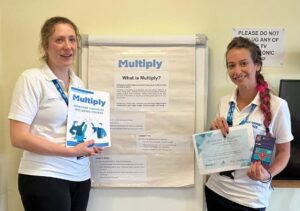Autistic people to be included in NHS mortality review programme
The NHS has announced that autistic adults will be included in a new and expanded learning from life and death reviews programme (LeDeR), which aims to improve health and care services.
The LeDeR programme was set up a number of years ago to look at why people with a learning disability often have poorer physical and mental health than other people and why too many people die earlier than they should, including from things that could have been prevented.
The programme will now also consider autistic people’s lives and the circumstances that led up to their death, in order to make recommendations about changes to local services.
The National Autistic Society said this is a really important step, given the huge health inequalities many autistic people also face and something that we, and many others, have been campaigning for.
All notifications of an autistic adult or an adult with a learning disability’s death will now receive a review by a local LeDeR team, which will include talking to their family, their GP or at least one other person involved in their care.
Tim Nicholls, head of policy at the National Autistic Society, said: ‘We welcome this crucial change from the NHS, which brings autistic people within the LeDeR programme and will help make sure lessons can be learned.
‘It’s a tragedy for anyone’s life to be cut short, and the NHS must be able to learn from what happened. This is particularly important for autistic people who face unacceptable health inequalities, often because of poor understanding of autism and the best way to support autistic people.
‘This change will be vital for the NHS’ efforts to improve care for autistic people.’
Health bosses said the policy was developed in collaboration with over 400 people, including people with a learning disability and their carers, bereaved families, commissioners, health and care providers, members of the LeDeR workforce, local authorities, social care providers and voluntary sector organisations, and LeDeR academics and policy experts.
Claire Murdoch, mental health and learning disabilities director at NHS England said: ‘Now in its fourth year, we have a significant amount of data to help improve care for people with a learning disability, and we are committed to ensuring people who are autistic also get the very best care.
‘Improving the lives of people with a learning disability involves a range of teams pulling together including the local NHS and local authorities working hand in hand and we are now taking the opportunity to develop and build on the LeDeR programme to drive improvements locally where it will make a difference to patients.
‘The new policy developed with experts has patients and their families at its heart, and we are committed to making sure that a person’s life is a focus of any review, as well as their death.’
Photo Credit – Pixabay
















